Faculty stand in solidarity with uOttawa encampment
A solidarity letter has garnered more than 200 signatures from faculty, librarians and staff.
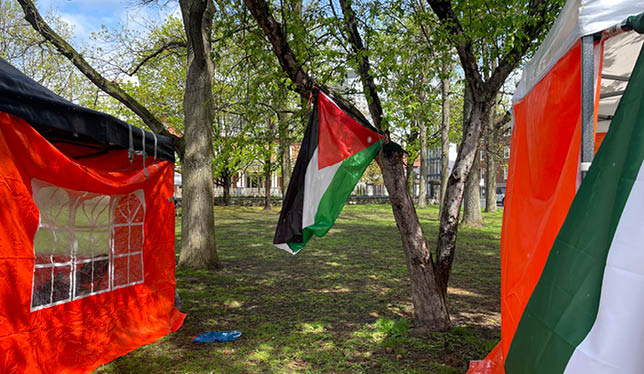
Among dozens of pitched tents and signs on University of Ottawa’s Tabaret lawn, there’s a new addition to the pro-Palestinian encampment: a second porta-potty. But this time, it wasn’t paid for by protesters.
“When… [faculty] found out we were paying for our own porta-potties, they provided the funds for that,” said Tom Deadman, a uOttawa student and pro-Palestinian encampment organizer. “Former professors of mine have been bringing down food like every day, every two days,” he added.
The group Faculty 4 Palestine Ottawa recently published a statement in support of the encampment. The letter has been signed by more than 200 uOttawa, Carleton University, and Saint Paul University faculty, librarians and staff.
The letter echoed the demands of protesters to “disclose and divest university funds from arms and other companies involved in the occupation of Palestine and genocide of Palestinians.”
Protesters have been camping out on uOttawa’s Tabaret lawn for more than 12 days. Organizers estimate that there are more than 70 tents on the lawn, with as many as 130 people occupying them.
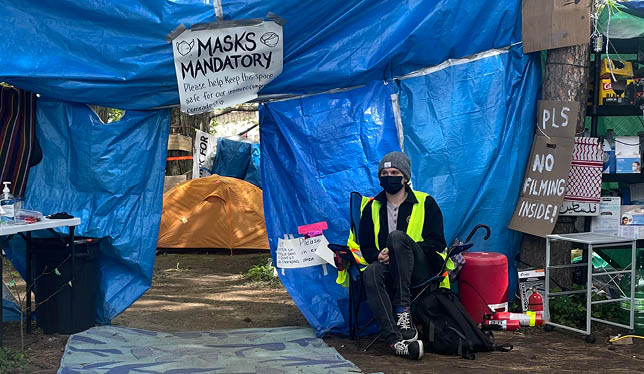
This protest is one of several encampments on campuses throughout Canada, inspired by movements across the U.S. since Israel’s response to the Hamas-led Oct. 7 attack in which some 1,200 people were killed and around 250 taken hostage. Israel’s military operation in Gaza has killed more than 35,000 Palestinians, according to Gaza’s health ministry.
Concerns of antisemitism on campus
At the same time, there are growing concerns of antisemitism on Canadian university campuses.
“What we’re seeing right now on campuses with the Jewish community, is that the Jewish people are expressing that they’re upset and that their institutions are being targeted,” said Lindsay Cogan, a past president of Hillel Ottawa, a centre for Jewish student life at uOttawa, Carleton and Algonquin College. “Nobody is taking those threats seriously.”
She said the uOttawa encampment causes her unease.
“You can still walk through Tabaret lawn, but you can’t walk through it without being bombarded by what feels like a very intimidating space,” she said. “Everybody there has a face covering on, either a mask or sunglasses with a keffiyeh… You don’t know who you’re interacting with, and that’s on purpose.”
Organizers say any forms of discrimination or harassment, including antisemitism, will not be tolerated at the camp.
“There are lots of Jewish students staying here,” Mr. Deadman said, adding that the encampment is also partnered with Independent Jewish Voices Ottawa. “Personally, I haven’t seen any cases of antisemitism … This is not a place for hate or anything like that.”
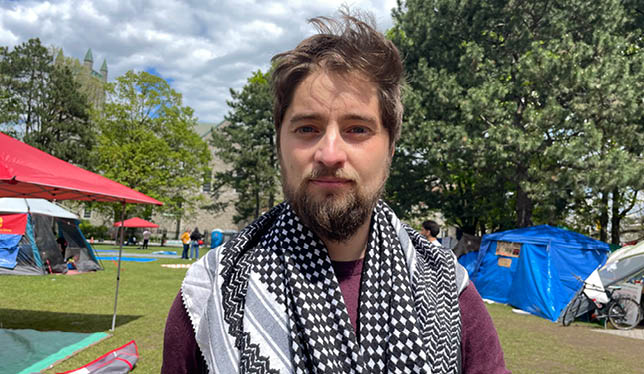
Ottawa-based academics support encampment
Among those allied with the camp are Ottawa-based academics who are standing with pro-Palestinian protesters and are voicing their support.
UOttawa professor Nadia Abu-Zahra signed the solidarity letter because she said she believes that every institution must be held accountable by law and its community.
“If we do not stand against those crimes, we will be complicit, particularly if our institution has investments in entities and institutions that are complicit in crimes of the greatest magnitude,” said Dr. Abu-Zahra, who teaches international development and global studies.
UOttawa artificial intelligence ethics professor Nour El Kadri said he signed the letter after visiting the encampment and talking to other professors.
“When it comes to human rights, it’s not a buffet that we can pick and choose from. We have to stand firm, and we have to send a strong message of divestment,” he said.
Dr. El Kadri also noted the complete destruction of postsecondary institutions in Gaza.
“We have a new term I’ve never heard before: scholasticide,” Mr. Deadman said.
The United Nations defines scholasticide as “the systemic obliteration of education through the arrest, detention or killing of teachers, students and staff, and the destruction of educational infrastructure.”
University response to protesters’ demands
On April 28, Éric Bercier, uOttawa’s associate vice president, released a statement to the community: “While peaceful protest is permitted in appropriate public spaces on campus according to our policies and regulations, encampments and occupations will not be tolerated.”
On May 7, Mr. Bercier and vice-provost Awad Ibrahim met with protestors to discuss their demands, but negotiations broke down, according to the uOttawa student news outlet The Fulcrum.
Faculty 4 Palestine Ottawa and signatories of its letter have now joined professors at the University of Toronto, McGill University and the University of Victoria among several others in demanding that their institutions disclose and divest university funds from businesses with ties to Israel.
Dr. Abu-Zahra said the core issue of how the university administration views its community should concern everyone, not just protesters.
Dr. El Kadri agrees. “As members of the university … we’re associated with it, we care about its name and what it does.”
Featured Jobs
- Education - (2) Assistant or Associate Professors, Teaching Scholars (Educational Leadership)Western University
- Business – Lecturer or Assistant Professor, 2-year term (Strategic Management) McMaster University
- Canada Excellence Research Chair in Computational Social Science, AI, and Democracy (Associate or Full Professor)McGill University
- Psychology - Assistant Professor (Speech-Language Pathology)University of Victoria
- Veterinary Medicine - Faculty Position (Large Animal Internal Medicine) University of Saskatchewan





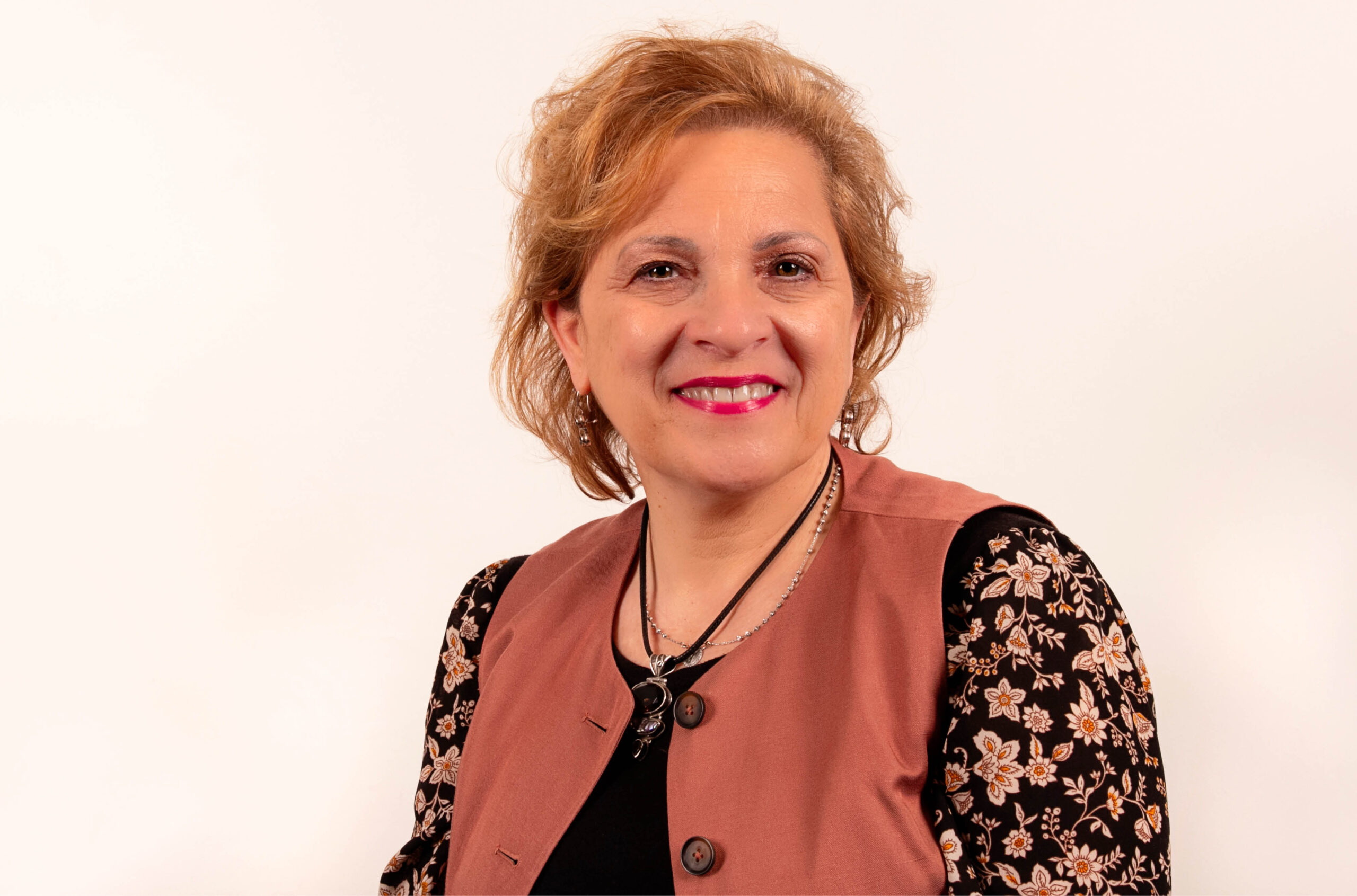
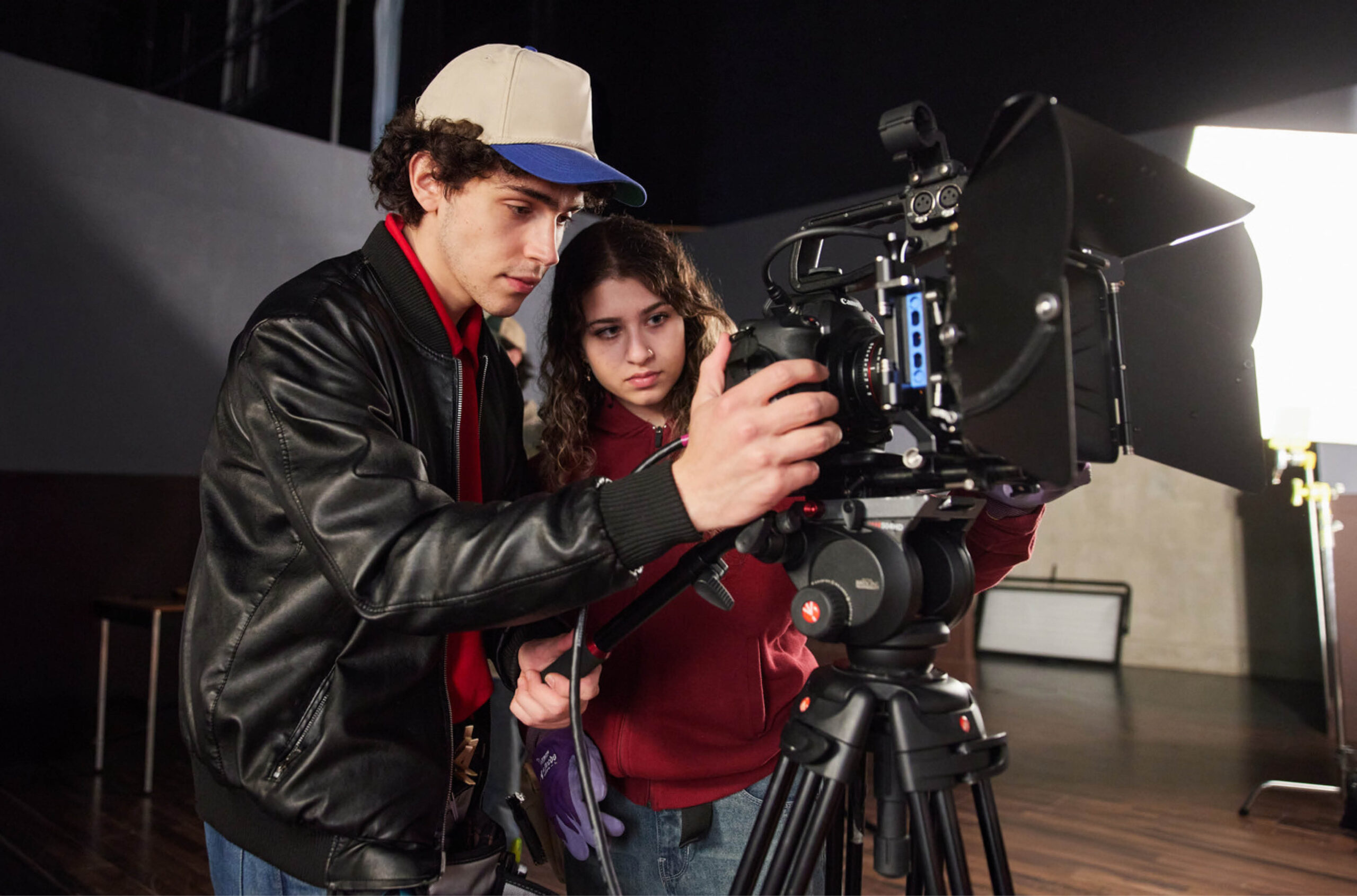
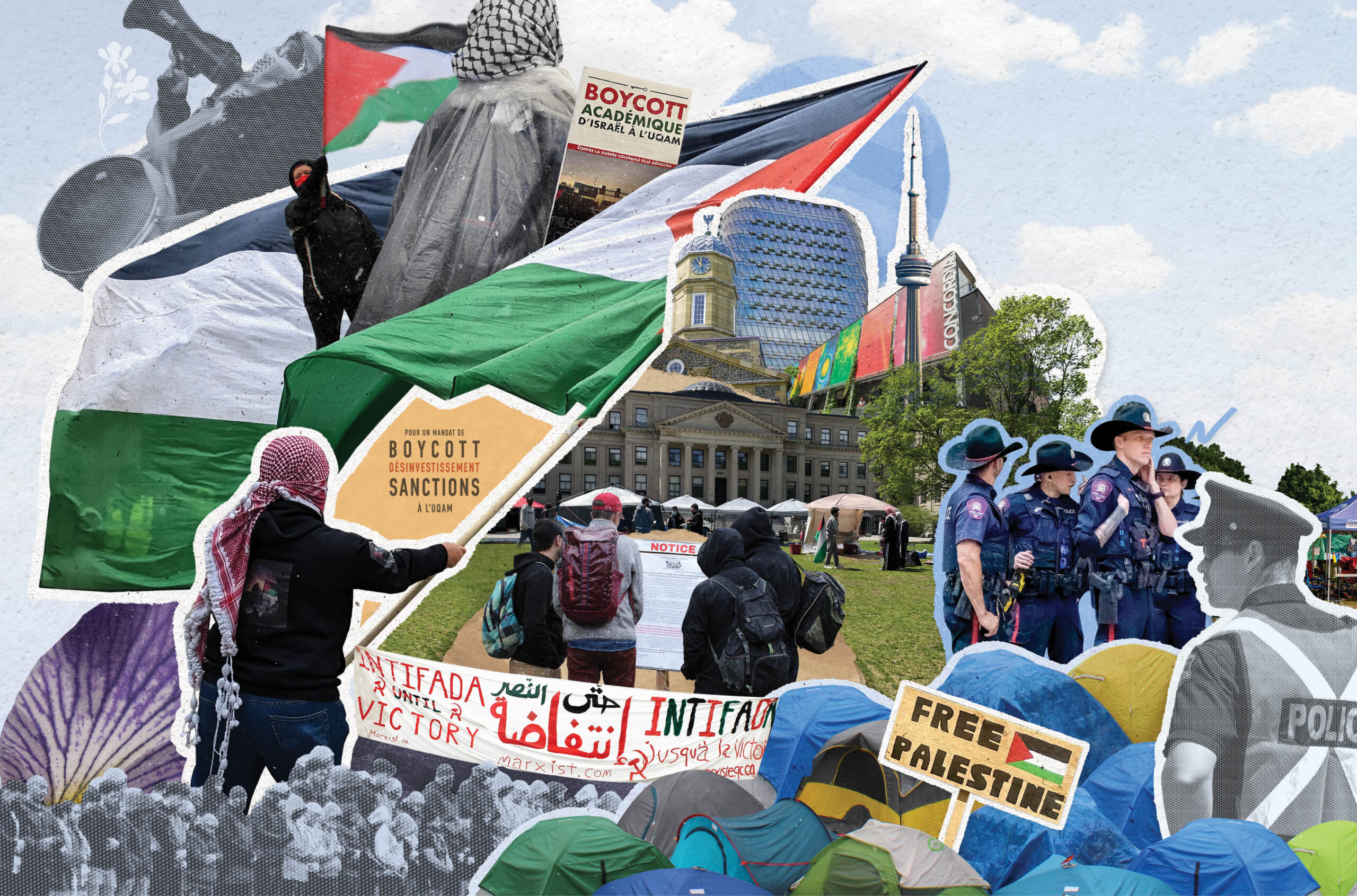

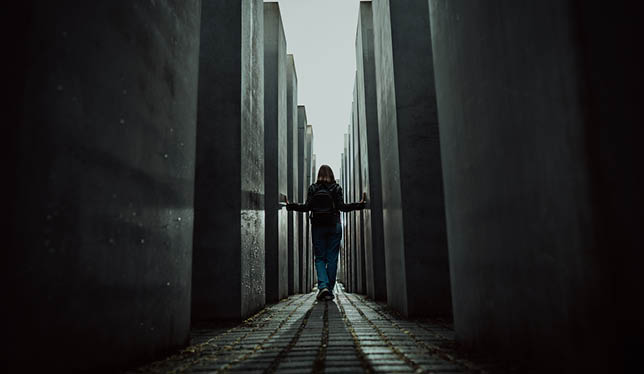
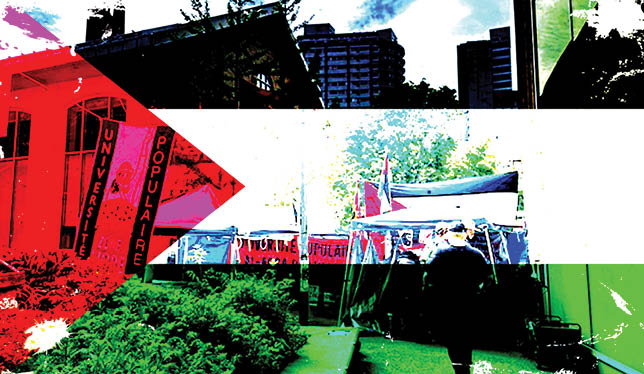




Post a comment
University Affairs moderates all comments according to the following guidelines. If approved, comments generally appear within one business day. We may republish particularly insightful remarks in our print edition or elsewhere.